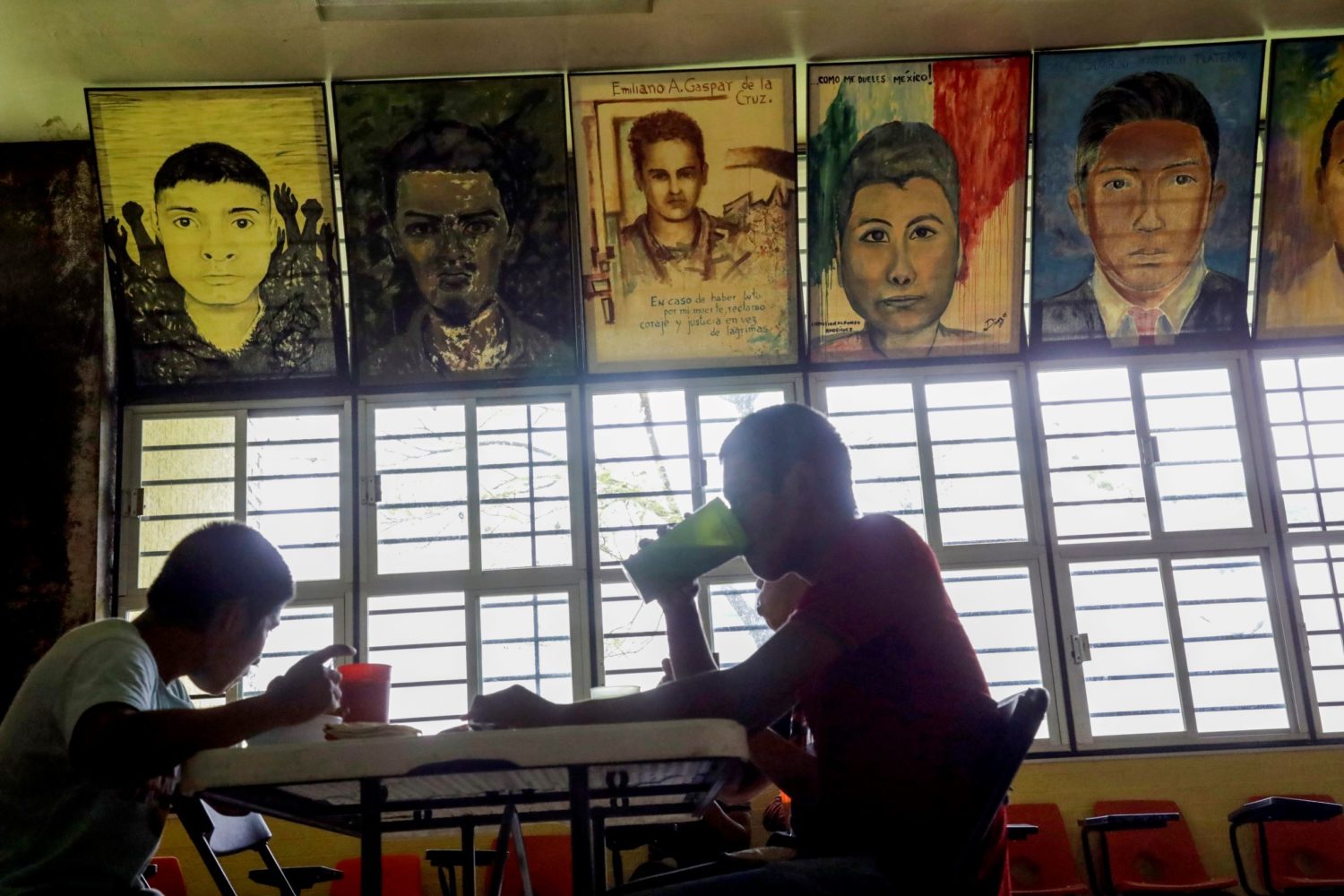
Nine Americans killed in Mexican ambush, Trump urges joint war on drug cartels
By Lizbeth Diaz
MEXICO CITY (Reuters) – Gunmen killed nine women and children in the bloodiest attack on Americans in Mexico for years, prompting U.S. President Donald Trump to offer to help the neighboring country wipe out drug cartels believed to be behind the ambush.
The nine people killed in Monday’s daytime attack at the border of Chihuahua and Sonora states belonged to the Mexican-American LeBaron, Langford, Miller and Johnson families, members of breakaway Mormon communities that settled in northern Mexico’s hills and plains decades ago.
A video posted on social media showed the charred and smoking remains of a vehicle riddled with bullet holes that was apparently carrying some of the victims on a dirt road when the attack occurred.

Christina Marie Langford Johnson and her daughter Faith Marie, part of a breakaway Mormon community who were attacked in Mexico, pose in an undated photo released by a family member November 5, 2019. Courtesy of Aaron Staddon via REUTERS
“This is for the record,” says a male voice speaking English in an American accent, off camera, choking with emotion.
“Nita and four of my grandchildren are burnt and shot up,” the man says, apparently referring to Rhonita LeBaron, one of the three women who died in the attack.
Reuters could not independently verify the video.
A relative, Julian LeBaron, called the incident a massacre and said some family members were burned alive.
In a text message to Reuters he wrote that four boys, two girls and three women were killed. Several children who fled the attack were lost for hours in the countryside before being found, he said.
He said it was unclear who carried out the attack.
“We don’t know why, though they had received indirect threats. We don’t know who did it,” he told Reuters.
Five wounded children were airlifted to a hospital in Tucson, Arizona, and a boy in critical condition was transferred to a Phoenix hospital, Lafe Langford, whose aunt and cousin were killed in the attack, said by phone from Louisiana.
Mexican Security Minister Alfonso Durazo said the nine, traveling in several SUVs, could have been victims of mistaken identity, given the high number of violent confrontations among warring drug gangs in the area.
But the LeBaron extended family has often been in conflict with drug traffickers in Chihuahua and other relatives of the victims said the killers surely knew who they were targeting.
“We’ve been here for more than 50 years. There’s no one who doesn’t know them. Whoever did this was aware. That’s the most terrifying,” Alex LeBaron, a relative, said in one of the villages inhabited by the extended family.

All of the dead were U.S. citizens, he told Reuters, and most also held dual citizenship with Mexico. They were attacked while driving on backroads in a convoy of cars containing the women along with 14 children, he said. Some were headed for Tucson airport to collect relatives.
State prosecutors in Sonora, where the dead were found in three separate locations, said ambushed family members had been planning to travel to the United States via Chihuahua.
The charred bodies of a woman and four children were found in a burnt Chevrolet Tahoe near the village of San Miguelito, while the corpses of a woman and two children were recovered in a white Suburban about 18 kilometers away, the statement said.
The body of the third woman was found about 15 meters (50 feet) from a Suburban near the Sonora-Chihuahua border.
Authorities are investigating whether a man arrested in Agua Prieta, Sonora with guns and ammunition could have been involved in the killings, prosecutors added.
The victims were members of the small community of La Mora, Sonora, set up decades ago by “pioneers” who broke away from the Mormon church, Langford said.
“They were targeted and they were killed on purpose,” said Langford, who grew up in La Mora and has a homestead there.
TIME TO ‘WAGE WAR’ -TRUMP
Trump has praised Lopez Obrador for combating cartel violence but said more needed to be done.
“This is the time for Mexico, with the help of the United States, to wage WAR on the drug cartels and wipe them off the face of the earth,” Trump said in a tweet reacting to the massacre.
Later, he and Lopez Obrador spoke by phone, with the U.S. president offering help to ensure the perpetrators face justice.
Prior to the call, Lopez Obrador rejected what he called any foreign government intervention.
Mexico has used its military in a war on drug cartels since 2006. Despite the arrest or killing of leading traffickers, the campaign has not succeeded in reducing drug violence and has led to more killings as criminal groups fight among themselves.
Falko Ernst, senior analyst for the International Crisis Group in Mexico, said Trump’s tweet suggests he may be gearing up to pressure Mexico over security, especially with his campaign under way for re-election in November 2020.
“If he throws in his whole leverage, as we’ve seen with migration, then there is very little the Mexican government can do to hold its ground,” Ernst said.
Northwestern Mexico has been home to small Mormon and Mormon-linked communities of U.S. origin since the late 19th century. The early Mormon settlers in Mexico fled the threat of arrest in the United States for practicing polygamy. The practice is observed by a shrinking number of Mormons in Mexico.
(Reporting by Lizbeth Diaz, Daina Beth Solomon and Andrew Hay; Additional reporting by Dave Graham, David Alire Garcia, Sharay Angulo, Adriana Barrera and Eric Beech; Writing by Alistair Bell; Editing by Andrew Cawthorne, Howard Goller and Gerry Doyle)














